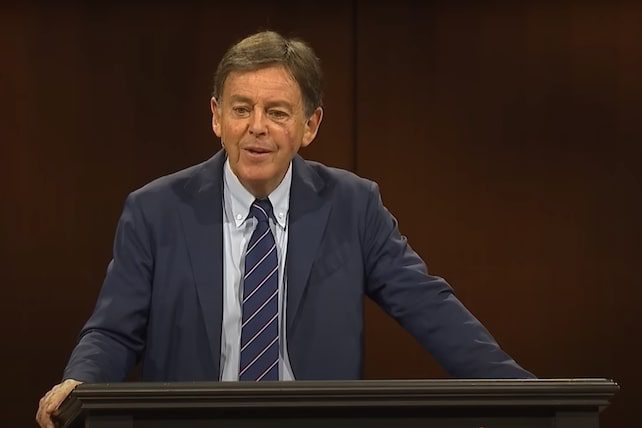Begg went on to describe societies that have turned away from God’s plan: “No boundaries at all. That notion of freedom in the absence of all restriction is not a reality. It is an illusion.”
There are other examples in society of people supporting individualism.
“‘Everyone should be free to determine their own truth and to define their own concept of existence of meaning of the universe and of the mystery of life,'” said Begg, quoting the U.S. Supreme Court ruling in Planned Parenthood v. Casey.
“Freedom of choice without constraints has become almost sacred in our culture,” said Begg.
“There is a complete reversal of a commitment to the reality of freedom as found in the living God when there is no moral law that overarches both those who are ruled and those who rule,” argued Begg.
The freedom found in Scripture is “free from guilt, free from a guilty conscience, free from meaninglessness, free from the prison of self-centeredness, freed from the shifting sands of subjectivity and being contemporary,” said Begg.
Begg explained, “Biblical freedom, under the yoke of Jesus, is paradoxical. To be myself, I have to deny myself. To be free, I have to give up my freedom. To live, I have to die to myself. To find myself, I have to lose myself.”
A Worthy Calling—Complete With Controversy—for Alistair Begg
Alistair Begg has a global audience through streamed sermons via his radio program, “Truth for Life.” He has written several books, including “Brave by Faith” and “Pray Big.”
Earlier this year, Begg was criticized for advising a grandmother to attend the gay wedding of her grandchild. The pastor took it a step further and encouraged her to bring a gift.
Begg took the time to confirm that the grandson fully understood the grandmother’s relationship with Jesus and that she could not support her grandson’s lifestyle choices. With that settled, the grandmother could focus on how to express her love for her grandson.
“Well, here’s the thing: Your love for them may catch them off guard, but your absence will simply reinforce the fact that they said, ‘These people are what I always thought: judgmental, critical, unprepared to countenance anything,’” said Begg.

